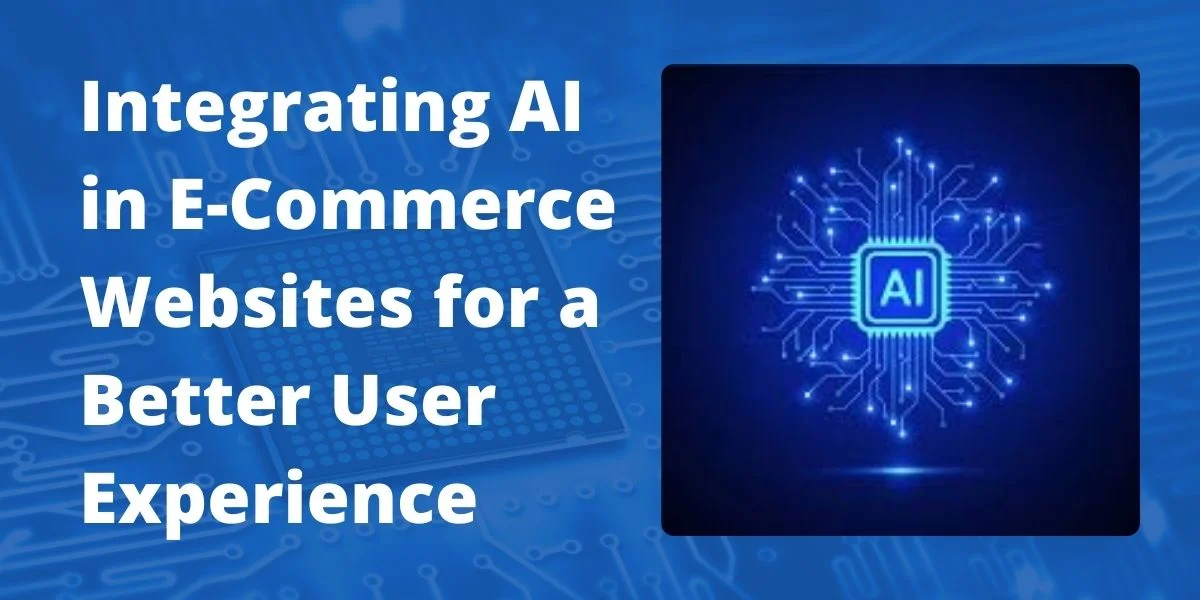
Artificial Intelligence (AI) is transforming industries globally, with e-commerce standing out as a prime beneficiary of its advancements. Integrating AI in E-Commerce Websites has become a game-changer, enabling businesses to deliver a personalized and seamless user experience. From improving search functionality to automating customer service, AI empowers online retailers to stay competitive in today’s fast-paced digital environment.
In this blog, we’ll explore how AI in E-Commerce Websites can transform e-commerce websites and how businesses can leverage its capabilities to enhance user satisfaction and drive growth.
E-commerce websites cater to diverse customers, each with unique preferences and shopping behaviors. Traditional systems often fail to understand and address individual needs. AI in E-Commerce Websites, on the other hand, analyzes vast amounts of data in real time to predict customer behavior, optimize product recommendations, and enhance overall user engagement.
Key benefits of integrating AI include:
One of AI’s most significant contributions to e-commerce is personalized product recommendations. AI algorithms analyze browsing history, purchase behavior, and even wishlist items to suggest products that align with user interests. This strategy enhances sales opportunities while fostering long-term customer relationships.
For example, platforms like Amazon use AI to provide tailored recommendations based on what users have previously viewed or purchased, creating a more engaging shopping experience.
AI-powered search engines on e-commerce websites ensure users find exactly what they want. Features like autocomplete, voice search and semantic understanding make the search process quicker and more accurate.
By analyzing user intent and context, AI eliminates irrelevant search results, enhancing customer satisfaction. For instance, typing “summer shoes” may yield results categorized by style, size, and price—all thanks to AI-driven search.
AI-powered chatbots and virtual assistants have become essential tools for modern e-commerce platforms. These tools provide instant support, answer customer queries, and assist with product recommendations.
AI chatbots provide round-the-clock support and efficiently assist multiple users at the same time, ensuring prompt and seamless customer service. They also learn from interactions, becoming more efficient over time. For example, a chatbot can guide users through the checkout process, making it smoother and more intuitive.
AI enables dynamic pricing strategies, ensuring competitive pricing while maximizing profitability. By analyzing market trends, competitor prices, and customer demand, AI helps retailers adjust prices in real-time.
For customers, this translates to better deals and promotions, enhancing their shopping experience and encouraging repeat purchases.
AI safeguards e-commerce websites by detecting and preventing fraudulent activities. Machine learning algorithms identify suspicious transactions, protecting both businesses and customers from potential threats.
For instance, AI can flag unusual purchasing patterns or unauthorized login attempts, ensuring a secure shopping environment.
AI optimizes inventory management by predicting demand patterns and minimizing overstock or understock scenarios. Accurate forecasting helps businesses maintain the right inventory levels, ensuring customers receive their orders promptly.
This capability reduces operational costs while improving customer satisfaction.
Also Read: https://analyticitservices.com/website-design/dynamic-website-in-wordpress/
Before implementing AI, determine your objectives. Are you aiming to improve customer service, increase sales, or optimize your inventory? Clear goals will help you choose the right AI tools and solutions.
There are numerous AI platforms and software tailored for e-commerce. For instance, Shopify integrates with various AI tools like Kit for marketing automation and Clerk.io for personalized recommendations.
AI relies on high-quality data to function effectively. Ensure your website collects and organizes data like user behavior, transaction history, and feedback. High-quality data forms the backbone of AI algorithms, driving their accuracy and effectiveness.
Implementing AI in e-commerce requires technical expertise. Partnering with AI specialists or hiring in-house talent ensures seamless integration and efficient utilization of AI technologies.
AI systems require continuous monitoring to maximize their potential. Continuously reviewing performance metrics and customer feedback is essential to uncover opportunities for enhancement.
The role of AI in e-commerce is constantly evolving. Here are some trends to watch:
Integrating AI in E-Commerce Websites is no longer a luxury but a necessity for businesses aiming to stay ahead in the digital marketplace. AI not only enhances the user experience but also drives operational efficiency and revenue growth.
As e-commerce continues to grow, embracing AI will empower businesses to deliver exceptional service, foster customer loyalty, and maintain a competitive edge. By leveraging AI technologies, you can create an innovative and engaging shopping experience that resonates with today’s tech-savvy consumers.